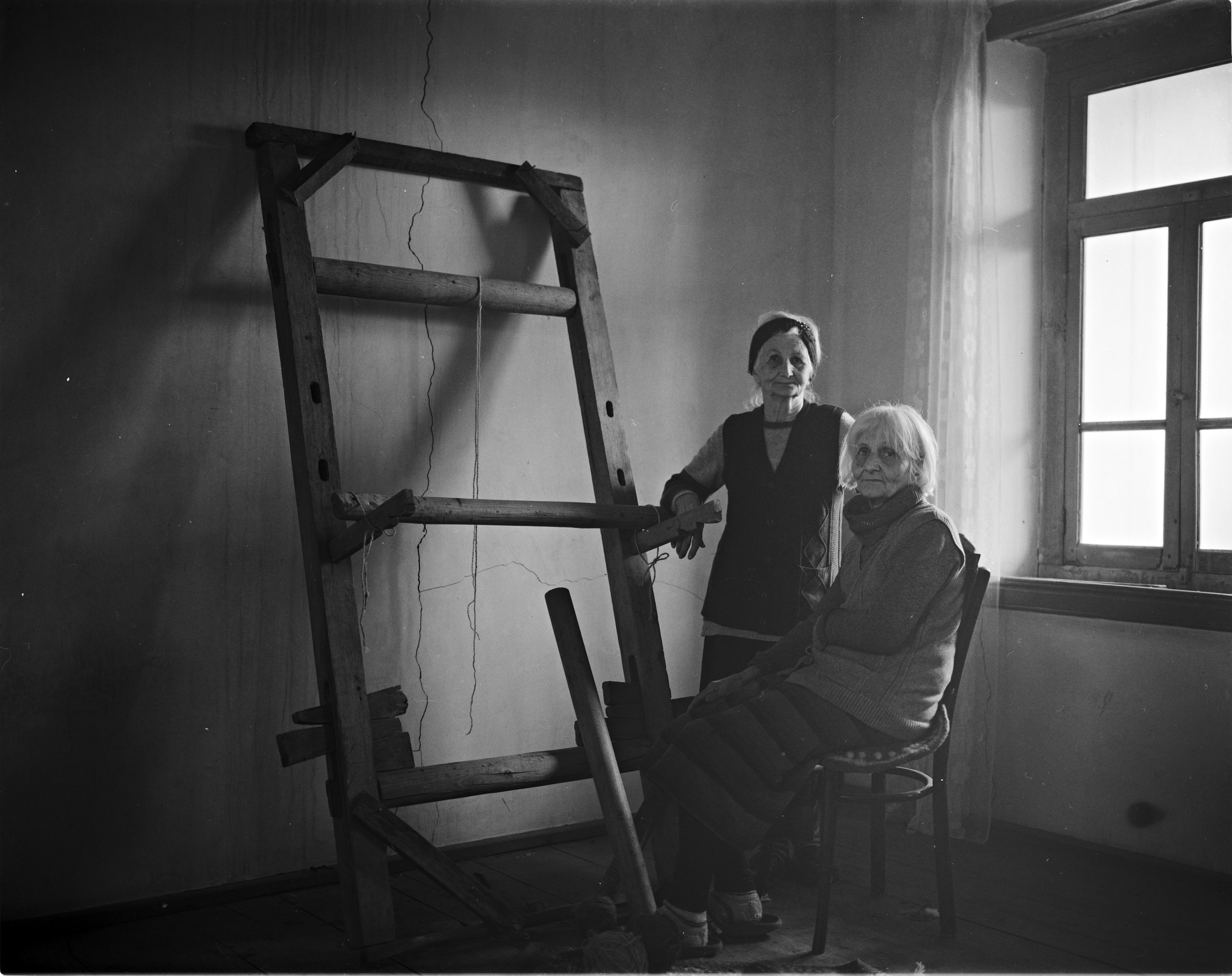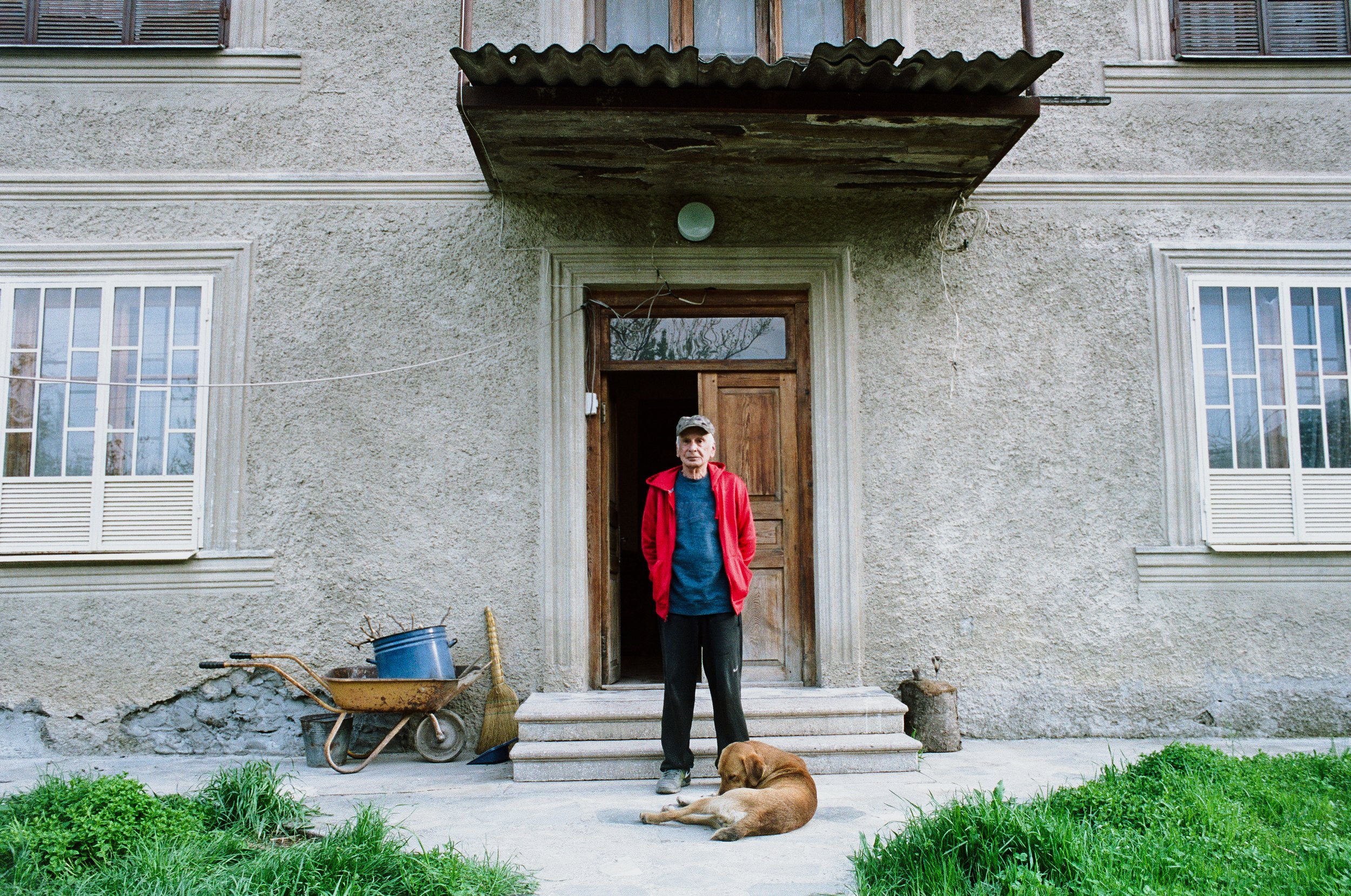The Tushetian Language:
Extinction by Assimilation of Tsova Tush
For Chai Khana Media’s photobook ‘Fragments of a Whole’
In one half of a small village in Georgia, a unique language is being forgotten. It is spoken by a group known as the Tsova Tushetians, or as ‘Bats’ or ‘Batsbi’ - a term which they generally consider pejorative. The younger generations are immersed in Georgian language, families are increasingly mixed and such a minority language is not useful in a modern workplace or school and travel and work is possible and essential now beyond the limits of Upper Alvani where the community live.
Georgia is a fascinating country linguistically and anthropologically. Although the Tsova-Tushetian language is of the Nakh family, related to Chechan and Ingush more than Georgian, there is no question that this community of linguistic outliers are Georgian to their cores. Georgia is a fascinating country in this respect, containing so many minority languages amongst different minority ethnic - or, one might say, micro-ethnic, groups that questions of identity naturally come about. Like Megrelians, Svans or Laz people, whose languages are Kartvelian (the family of standard Georgian, barely existing beyond Georgia’s borders), the Tushetians are very much Georgians; they often consider the separation of identities to have been a Soviet technique to divide and rule: historically, the kings of Georgia took only Tushetian bodygaurds, and now, playing with the modern-day statement of Georgian identity ‘I am Georgian, therefore I am European’, Levan told me succinctly: “I am Tush; I am Tushetian, therefore I am Georgian!”
Despite the decline of the language, the communities traditions continue. Annually they all travel up into the mountains to Tbatana, one of the villages of their historic homeland, for a great festival. The two villages of Alvani, where Chaghma and Tsova Tushetians live were built after landslides in the late eighteenth century destroyed their homes and ever since, they have been transhumant from the bottom of the mountain with shepherds spending summers in the mountains.
There are efforts to record and protect the language, though, as well as to encourage its use in a limited revival. The Tushetian Council arranged funding for a computer game in the Tushetian language and support linguistic research projects. A dictionary was published several years ago and a new book on the language published recently in Georgian to assist preservation.
Since Chai Khana published this story, in 2023, the Tsova Tushetian community were granted permission to start teaching their language in higher schools which has given great hope for its continued knowledge, if only at a basic and academic level.




Mzia, the primary school teacher, teaches Tushetian vocabulary for 15 minutes three times per day; she was not optimistic that students would gain any fluency this way.
At home, Mzia commented: “I also don’t speak Tush language with my children. I don’t know why.” Her mother Elene knows the language well, but her son Vakhtang understands a little but does not speak the language.
Levan and Nata, Nino and Nikoloz: Levan is a prominent force in advocating for recognition and survival of the language and culture. He was the first president of the Tushetian Council. Nata understands the language and can speak it. Even this family’s children, though, are not fully proficient in Tushetian. Nikoloz knows simple things in Tsova Tushetian, Nino less so.
Members of the Tushetian Council: Modelled on the ancient council of elders of Tusheti, this group advocate for the language and culture, encourage and conduct research and arbitrate within the community and represent and discuss families' concerns. The ancient body were deeply democratic and gender balanced and the current council maintains this tradition (despite only men being available for the photograph in time for this commission, unfortunately).
This non-profit organisation represents Tsova Tushetian interests and works to promote language study, revival attempts, and publication of information about linguistics and anthropology of the people, as well as working directly with local government. The 17 councillors are change every two years and are elected from the 8 clans (sagvarelo – groups of families or large family units) of the 118 Tsova Tush families, inspired by the ancient Tushetian council system. In one recent project they received a grant to develop an online game in the Tsova Tush language. They hope it can inspire younger people to learn the language by providing a relevant context for language learning. Levan explains: “They should be learning with pride and it is our job to awaken their interest and curiosity.”
Daria and Mariam, two sisters who make traditional Tushetian carpets said that if they meet someone from the same generation then they speak Tsova Tush, but even between themselves they normally speak Georgian. “My heart breaks,” says Daria, “I feel the same way about it as if it were a living person. Probably the language will only be preserved in books”. Daria has studied linguistics of Caucasian languages and she writes essays on the Tsova Tush language. Recently she helped to take census data of speakers of the language to accompany the publication of a new Tsova Tush dictionary, translating to Georgian, Russian and English.
Sabeda: one of the last singers to sing in the language. She has passed some songs along to younger children, but the choir fell apart due to lack of funding. She isn't optimistic about the language's future. Listen to her songs at the top of the page.
Tinatin is one of the only teachers to formally teach the language. She ran classes in Tbilisi, but as of 2022, she will be teaching in school in Alvani. She has studied the language and has translated poetry, notably of Galakton Tabidze.
Eldar, a member of the Council, hopes to start a total immersion nursery school in which Tushetian is the only language. He is converting a house for the purpose himself. He had a diverse past as a physisict, but eventually fell into studying linguistics to better understand the history of the language and its relevance to Georgia and Georgian language. Currently he is translating Vaja Pshavela’s Aluda Ketalauri, an epic by a legendary poet of the neighbouring mountain region.







